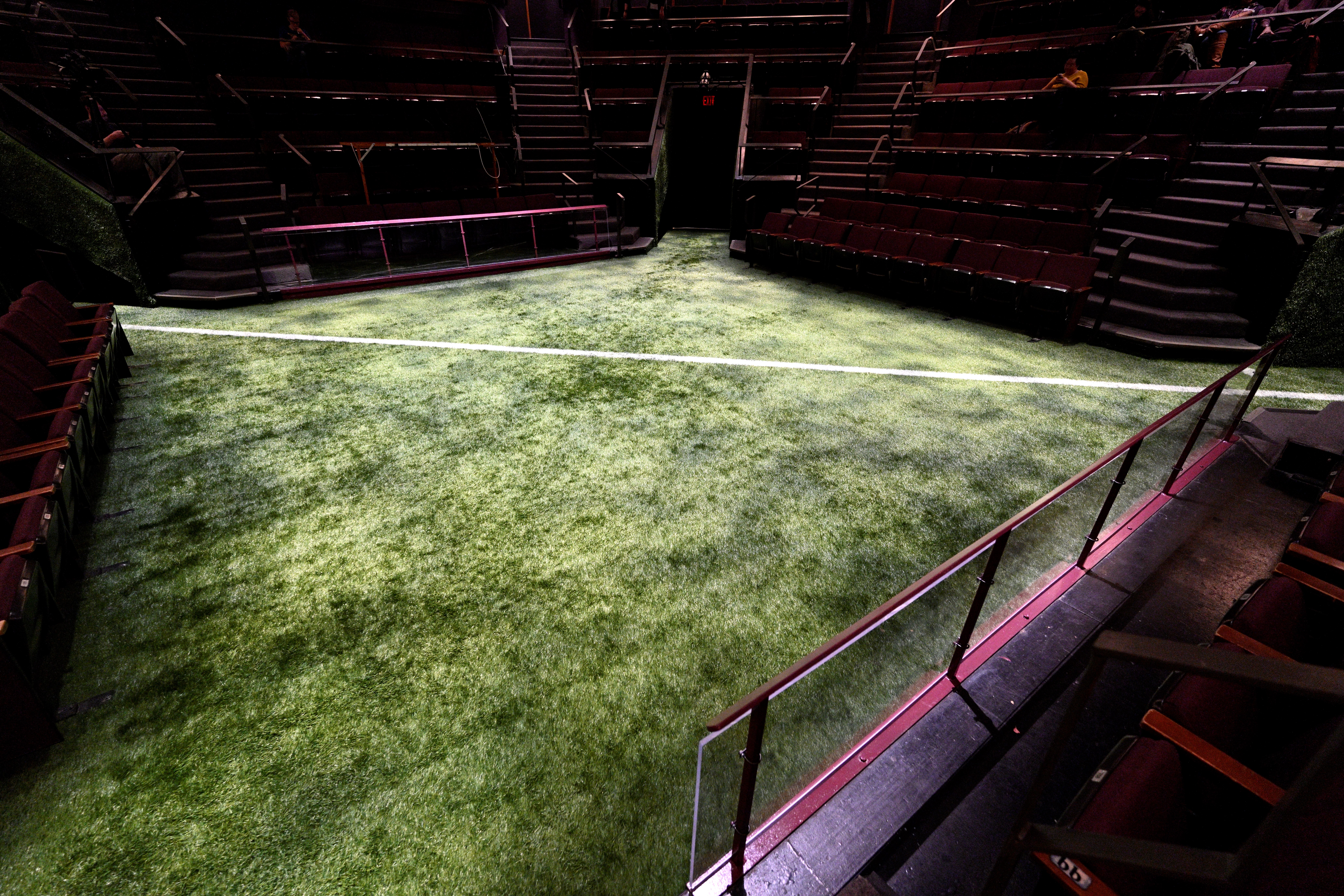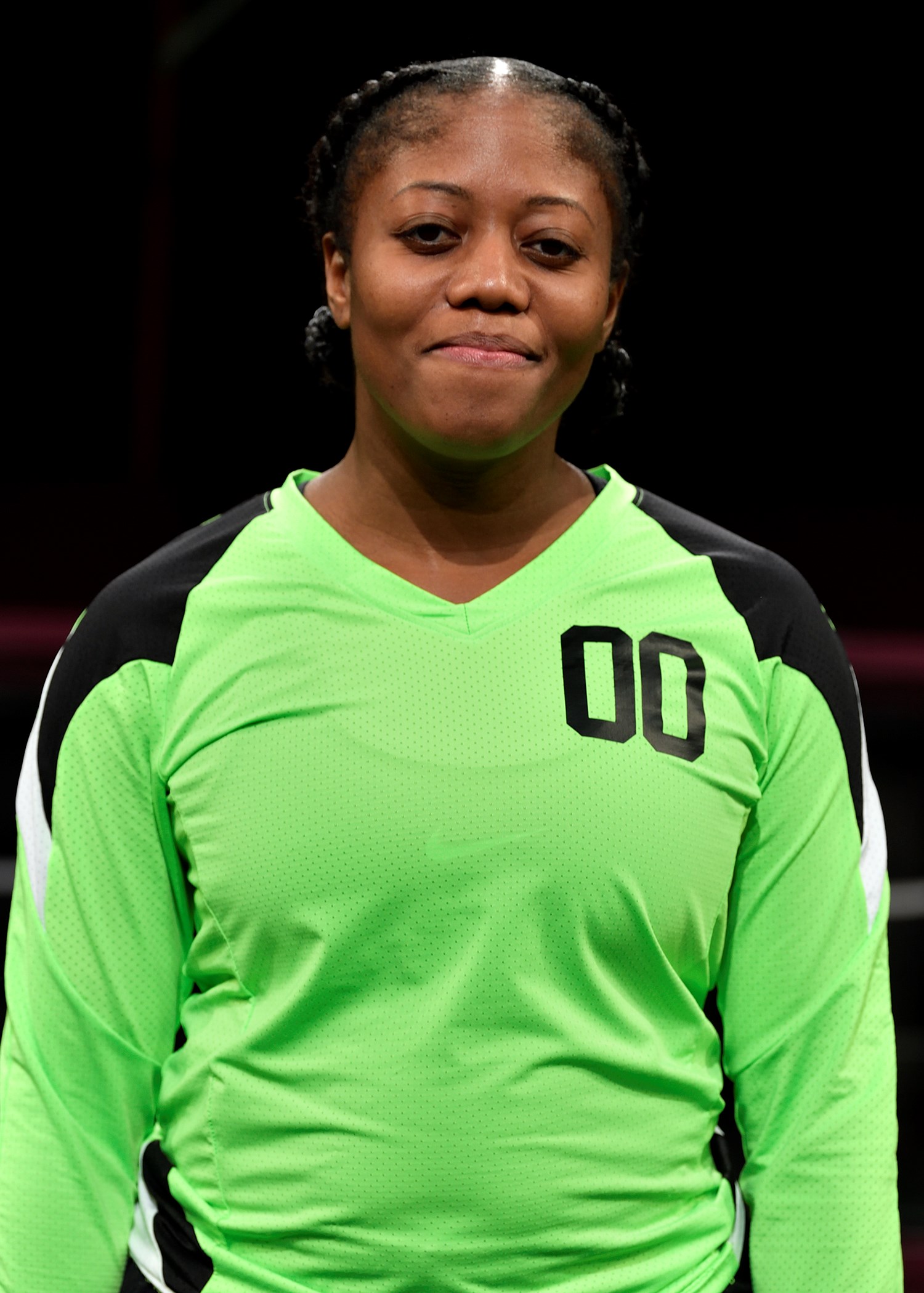Sensory Friendly Guide
Get up close to the action as a girls’ indoor soccer team prepares for battle. Amid warmups and passing drills, the undefeated Wolves psych each other up—and dive into rapid-fire, unfiltered conversations about the world and their places in it. What happens when life both on and off the field tests the team’s endurance? A finalist for the Pulitzer Prize, The Wolves boldly celebrates the grit and grace of 21st-century American girls.

 The Wolves set throughout the play
The Wolves set throughout the play
SETTING
An indoor soccer field somewhere in suburban America. The field is AstroTurf. We only
see the field: no goals, no bleachers.
Strong language and discussion of sex.

#11 (Midfield)— Brainy. Morbid. Budding elitist. Thoughtful.

#25 (Defense)— Captain. Classic (ex)coach's daughter. Probably a better leader than a player.

#13 (Midfield)— Stoner. Has older pot dealer brother. Enjoys being a little wacky.

#46 (Bench/Striker)— New girl. Awkward. Different. Just wants to fit in.

#2 (Defense)— Innocent. Unlucky. Cares a lot about other people, but doesn't always know how to help.

#7 (Striker)— Too cool for school. Sarcastic. Prone to swearing. Pushes against society's expectations.

#14 (Midfield)— #7's insecure sidekick. Just switched to contacts. Wants to forge her own path, but doesn't know where to start.

#8 (Defense)— Childlike and determined to stay that way. A little ignorant of social issues.

#00 (Goalie)— Intense performance anxiety, perfectionist, high achiever. Quiet, but that doesn't mean she doesn't have opinions.

Soccer Mom— A mother.
Choices While At The Show
Here are a series of options you have while attending The Wolves:
Before the play…
— Enter the theatre building
— If needed, pick up your ticket at the Box Office
— Before or when the announcement is made on the speakers, enter the theatre and find your seat
— Sit down in your seat
— Listen to the pre-show announcement speech
During the play…
— Stay seated and watch the play
— Move to one of the standing room sections at the back of the theatre to stand while watching the play
— Move to the lobby to watch the play from a TV monitor
— Move to the lobby for a quiet space with no monitor and less noise
*If you choose to leave the theatre during the performance, you may return to your seat whenever you are ready and when the house manager says it is OK.
During intermission…
— Stay in your seat
— Or go to the lobby. In the lobby, you can:
– Use the restroom
– Look at the art in the lobby
– Buy food or drink at the Mezzanine bar
— Before or when the announcement is made, return to your seat. Watch the second part of the show.
After the play…
— If you wish, applaud during the curtain call when the actors bow
— Exit through the Mezzanine level
— Or stay seated until most of the crowd has exited to the lobby and then leave at your own pace
Resources
Arrival Guide
What to expect getting to your seat
Sensory Intense Moments
Additional Information
Actors Theatre encourages all of our audience members to engage with this performance in ways that are most comfortable for you.
Actors Theatre of Louisville is committed to a judgement-free experience for all audience members. While attending this performance, you might see a variety of behaviors, including:
Stimming: a physical or verbal response to over- or under- stimulation that can provide self-regulation or self-expression. This might be repeated hand-wringing, rocking or clapping.
Echolalia: Some patrons may repeat phrases, quotes and speech. Sometimes, this aids comprehension, and sometimes, this can be a calming or relaxing activity.
Tics: Involuntary movements or vocal sounds (please note: tics and stimming are separate behaviors)
Touch Sensitivity: Some patrons may be very uncomfortable with physical touch from others and/or aware of the sensation of materials on their skin.
Alternative Communication: Some patrons might use non-verbal forms of communication in response to over- or under- stimulation. Types of communication can vary and can include: sign language, typing, body language, facial expressions and/or using pictures.
Fidgets: Some patrons may bring small objects with them to a performance – like stress balls, sewing pads or putty. Using these objects can relieve stress, aid relaxation and increase focus.
Sensory and Emotionally-Intense Moments: The ushers at each performance will have a list of sensory intense moments throughout the play. For example, the list may note lights, sound effects or other sudden changes that could be overwhelming to some patrons.
Special thanks: Talleri McRae, The Kentuckiana Autistic Spectrum Alliance (KASA), Autistics United Kentucky, The Kentucky Autism Training Center and Heidi Cooley-Cook, Micah Peace, Bev Harp, Erin Fitzgerald, Cody Clark, Peyton Stockdale and Natalie Ambrosino.
